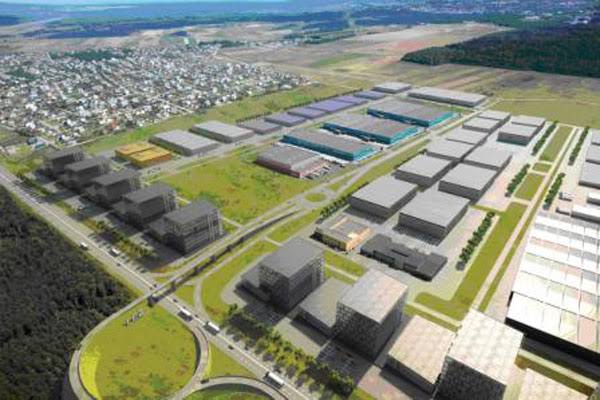At Kenya’s Dongo Kundu Special Economic Zone, construction has begun on a liquefied petroleum gas (LPG) refilling plant, and a 30,000-ton storage facility, all of which are projected to cost $130.5 million.
In an effort to make clean cooking gas much more accessible and affordable for both East African countries, Tanzania-based LPG distributor Taifa Gas began construction on its project on February 24. Taifa Gas will serve both Tanzania and Kenya.
Also Read: Top 5 energy projects in Kenya to face funding cuts
Davis Chirchir, the Kenyan Cabinet Secretary for Energy and Petroleum, said that they are investing in infrastructure as an incentive to encourage the use of cooking gas. He added that the Energy and Petroleum Regulatory Authority, the East African nation’s commission in charge of technical and economic regulation of electricity, has granted several licenses to private investors to build bulk LPG facilities.
Owing to Kenya’s attempts to establish bilateral trade agreements with Tanzania, Taifa Gas has entered the country’s gas market.
The government has implemented plans to invest more than $200 million, in addition to $400 million in investments and tax relief, in the development of facilities designed to store and manage LPG. The LPG plant is being constructed as Kenya is working toward universal access to clean cooking energy by 2030.
Reported earlier
Sep 2019
Plans to construct Dongo Kundu Special Economic Zone (SEZ) pick up the pace
Plans to construct the much-awaited Dongo Kundu Special Economic Zone (SEZ) are picking up pace. This is after the Kenyan government recently signed a Memorandum of Understanding (MoU) with Japan for its implementation. The over US$ 30.5bn project is expected to unlock more than 60,000 jobs in Mombasa, the coastal city of Kenya
However, this does not mean that the project starts immediately as Kenya is still expected to sign a final print of the deal with Japan come this December after which the construction shall be set to kick off.
Kenya Ports Authority Managing Director, Mr. Daniel Manduku, confirmed that an MoU was signed and he noted that the key shareholders, who in this case are the county and national governments, are working around the clock to make sure that they have a contractor on site before June next year.
Funding for the project
Funds to finance the project will be granted to the government of Kenya by her Japanese counterpart. About 85.92% of the entire amount will be a loan, while the rest will be a grant.
Additionally, the MoU which was signed last month during the Tokyo International Convention on Africa Development (Ticad) in Japan, states that the loan and the grant are expected to end within a period of three years, after the completion of the project.
An overview of the project
The Dongo Kundu SEZ industrial and commercial hub project is part of a master plan for the development of the Mombasa SEZ that was conceived four years ago.
It is expected to be executed in phases on a 1,326 hectares piece of land with the first phase projected to be ready by June 2022.
Reported on June 13, 2022
Grant signed for development of Dongo Kundu Special Economic Zone (SEZ) in Mombasa
A close to US$ 331M grant has been signed for the development of the Dongo Kundu Special Economic Zone (SEZ) in Mombasa, Kenya.
The grant was signed between the Kenya Ports Authority (KPA), a state corporation with the responsibility to “maintain, operate, improve and regulate all scheduled seaports” on the Indian Ocean coastline of Kenya, represented by John Mwangemi, the acting general manager, and the Japanese International Cooperation Agency (Jica) represented by Naota Mukai.
This grant will enable Dongo Kundu Special Economic Zones Authority to begin the construction of the SEZ which is aimed at attracting a more significant share of foreign direct investment (FDI) and exports, as well as jobs, reportedly in July this year.
According to Kiyonori Matsushima, the Special Economic Zone Development Advisor at JiCA, the project is developed under the Ministry of Industrialization and is expected to be fully operational by 2026.
Expectations for the Dongo Kundu Special Economic Zone (SEZ)
Commenting on the project, the Japanese Ambassador to Kenya Ken Okinawa said that the project has the potential to completely change the economic dynamics of the region because it is connecting the Indian Ocean with Africa.
“There will be much more trade activity and investment, which will really revitalize the economic activity in this region and create jobs for the region and beyond. With a location for regional pan-African operations—an area dedicated to the Africa Continental Free Trade Area (AfCFTA)—we anticipate that the port will provide growing access to regional markets, and a catalyst for local private sector development,” explained Okinawa.
The Dongo Kundu SEZ authority has said it will help SMEs establish direct exporting and subcontracting linkages with firms in the zone.


Afternoon Patrick, do you know who is supposed to implement the Dongo Kundu SEZ?